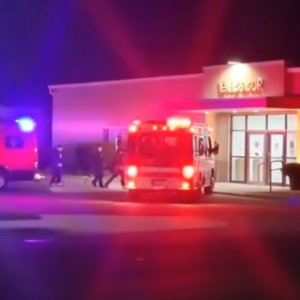President Donald Trump has issued a sweeping pardon order covering more than 70 individuals, including Rudy Giuliani, John Eastman, and Tyler Bowyer, all of whom had been charged for their alleged roles in efforts to overturn the 2020 presidential election. In a proclamation announcing the decision, Trump said the measure was intended to correct what he called a “grave national injustice” stemming from investigations and prosecutions that followed the election. He described the action as part of a broader effort toward “national reconciliation,” declaring that he was granting “a full, complete and unconditional pardon” to all U.S. citizens involved in actions connected to challenges against the 2020 results.
The pardon covers a wide range of activities related to the post-election period, including the creation or advocacy of alternate slates of electors and efforts to expose what Trump and his allies described as election “fraud and vulnerabilities.” The list of those named in the proclamation is extensive, featuring high-profile figures such as Giuliani, Trump’s former personal attorney and the former mayor of New York; Eastman, a lawyer who helped craft legal arguments aimed at contesting the 2020 outcome; and Bowyer, a senior member of the conservative youth organization Turning Point USA.
Others listed include prominent Republican activists and former officials such as Mark Meadows, Sidney Powell, Jenna Ellis, Kenneth Chesebro, and Kelli Ward. Trump’s declaration effectively grants legal immunity to dozens of individuals who were involved in organizing or promoting the controversial alternate elector schemes that were central to investigations in several states. However, the document explicitly states that the pardon “does not apply to the President of the United States, Donald J. Trump,” meaning any legal cases directly involving Trump himself remain unaffected.
In response to the pardon, Tyler Bowyer expressed deep gratitude on X (formerly Twitter), thanking Trump, his pardon attorney Ed Martin, and supporters who “looked out for us since this expensive injustice has taken place.” Bowyer said that those targeted by the investigations had been “sidelined politically,” suffered financial hardship, and endured “severe trauma,” framing the pardon as a step toward exposing alleged wrongdoing in how the cases were handled. His comments echoed Trump’s broader argument that the prosecutions were politically motivated efforts to punish those who questioned the election’s integrity.
The timing of the proclamation has already influenced ongoing legal proceedings. In Arizona, Attorney General Kris Mayes appeared poised to drop the so-called “fake electors” case, which involved 18 individuals accused of falsely declaring themselves as Arizona’s official electors for Trump in 2020. The Arizona Supreme Court recently rejected Mayes’s attempt to appeal a lower court’s ruling that sent the case back to a grand jury. After Trump’s pardon announcement, questions arose about whether pursuing the charges remained viable. Mayes declined to confirm whether the case would be dropped but noted her pride in the work of her office’s prosecutors and investigators.
Legal experts say Trump’s proclamation, though controversial, has the potential to reshape several state and federal cases tied to post-election activities. While some critics argue that the pardons undermine accountability for those who sought to subvert the democratic process, supporters contend they represent a necessary corrective to what they see as partisan legal overreach. By excluding himself from the order, Trump sought to demonstrate impartiality while still shielding many of his allies. The broad scope of the pardons marks one of the most sweeping exercises of clemency in U.S. history, highlighting how the political and legal battles over the 2020 election continue to shape the nation’s political landscape.





